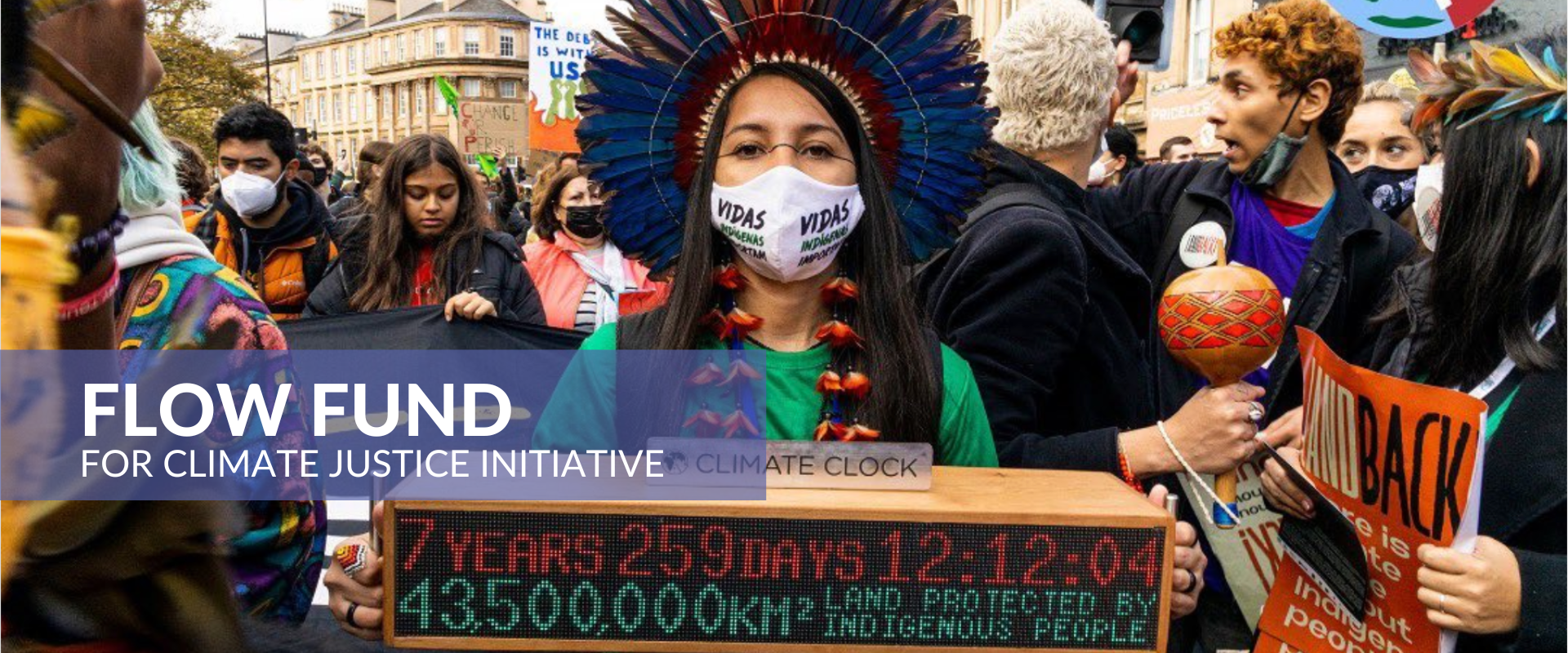
Since the Panta Rhea Foundation began, arts and culture have been central to its mission of catalyzing a just and sustainable world through food sovereignty, people-powered systems change, and grassroots resilience around the globe. In addition, cultivating deep relationships with our partners has helped evolve our thinking around our role as a funder. Wanting to deepen our connection between creativity and movement building, we began a learning process in 2021 to determine what more we could do to advance such efforts.
ABOUT THE FLOW FUND INITIATIVE
The Panta Rhea Flow Fund is a two-year initiative to support creative practices advancing climate justice while shifting traditional funder-led grant decision-making process to community-based activists. Launched in spring 2022, the goals of the Flow Fund are:
- To support U.S.-based social justice movement organizations using arts-based strategies to amplify and/or advance their climate justice advocacy.
- To engage in reciprocal learning while building deep relationships with climate justice and arts community members.
- To shift grantmaking decision-making power to those who are most closely connected to the arts and climate justice, rather than centering it with donors and funders.
FLOW FUNDERS
Panta Rhea’s Flow Funders include community leaders actively engaged in arts and climate justice across the United States. They bring lived and professional experiences in artmaking, journalism, activism, community organizing, restorative justice, artistic curation, and stewarding reclaimed Indigenous land. Through the process of shaping the Flow Fund, each of our Flow Funders developed grantmaking strategies and recommended up to $50,000 in grants. Grants supported US-based 501c3 charities of various budget sizes and artists whose work aligned with the Flow Fund goals and grantmaking strategies of each Flow Funder.
As the Flow Fund moves beyond its inaugural year, Panta Rhea will continue to share more information on the Flow Funders, their funding strategies, and additional opportunities as they emerge.
Gerlie Collado, Panta Rhea’s grants and administration lead, stewards the initiative on the Foundation’s behalf.

Photo: Raizes Collective members work on a mural at Haystack Farm in Sonoma, CA in 2021.
FOUNDING PARTNER
Kindle Project, the initiative’s founding partner and facilitator, is a women-founded, women of color-led, grassroots philanthropic organization working intersectionally to build bridges, flip power, and support community-driven philanthropy. Kindle Project has over 15 years of experience with various methods of participatory grantmaking, including Flow Funding. Kindle Project describes Flow Funding as a “participatory grantmaking approach that engages innovators, individuals, and organizations outside of typical philanthropic institutions with funds that they recommend as grants and gifts to communities and organizations of their choice. Flow Funding seeks to break open predictable patterns of philanthropic decision-making and allows for the democratization of funding decisions. This change in decision-making helps shift power and resources so that they reach unlikely places that are not visible from within a traditional funding model.”

